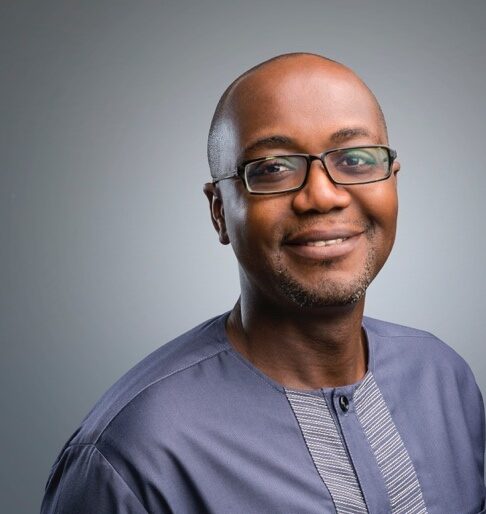The rapid pace of global change created by a confluence of several factors such as demography, technology, geopolitics etc. has been exacerbated by the COVID-19 global pandemic. The devastating effect of the pandemic which led to a global lockdown has created increasing levels of uncertainty for businesses.
These events have created unprecedented challenges and opportunities for leaders and organisations as they seek to protect lives and livelihoods. This calls for a new generation leadership. In Ghana, the COVID-19 pandemic coupled with the aftermath of the 2017 banking sector clean-up has put several businesses under severe strain over the last 5 years.
In response to the pandemic, many organisations modified their business models and accelerated digitisation agendas. Many businesses seem to have survived the crisis. However, a great deal of uncertainty remains regarding the future of business, economic growth, and the state of our world.
The case for new generation leader/leadership
This raises the question: Is it enough for business leaders to simply survive the crisis? Crises present opportunities to investigate avenues for powerful leadership transformation, which inevitably results in organisational transformation and broader societal advancement.
As we emerge from the throes of these crises, a new generation leadership is required in order to accelerate transformation in a pandemic era that is characterised by new ways of living and working. The type of enterprise leader who is likely to thrive in a pandemic era and lead this transformation can be described as: one who works with empowered teams to fulfil the mission of the enterprise that serves the true aspirations of all stakeholders.
This description has three key elements. This new generation enterprise leader:
A. Rallies, defines and advances the mission of the organisation
An enterprise leader truly believes in the mission of the organisation. This leader continuously shapes the mission and conveys ideas in a manner that inspires and mobilises others to join the organisation’s journey.
B. Empowers teams
An enterprise leader empowers employees to pursue aspirations that are core to them and the organisation. A recent McKinsey report showed 40% percent of employees globally are considering their next job. Employee engagement is at an all-time low. More than ever, workers need to be empowered to pursue work that is deeply meaningful to them.
C. Meets the true aspirations of all stakeholders
From staff to customers, shareholders to community members – an enterprise leader seeks to understand their entire ecosystem and engage purposefully.
4 Behaviours of new generation enterprise leaders:
From the description provided, it’s clear that successful enterprise leaders are not defined by their traits or leadership style. What sets them apart is their ability to harness the power of a big mission, leverage teams and meet the aspirations of all stakeholders. By doing this, they are able to uplift the whole ‘village’, creating wide-scale impact.
A few enterprise leaders – including Patrick Awuah, Kwasi Tabury and Edward Effah – have demonstrated this type of leadership in their respective organisations. I will use their example to illustrate my views on the 4 critical behaviours of the new generation enterprise leaders. This ‘framework’ for a bold new generation leadership was first shared with a group of leaders on the Breakfast Club Africa Programme in April 2021.
Patrick Awuah, Kwasi Tabury and Edward Effah lead organisations in the education, sports retail and banking sectors. These sectors were severely impacted by the crisis, but the leaders and their organisations have proven resilient in the face of daunting challenges. The new generation enterprise leaders routinely practice these behaviours which enable them to thrive and accelerate transformation in the midst of uncertainty:
- Invests in Understanding Context
Enterprise leaders invest heavily in gaining a deep awareness of their organisational context. Key to mention is that these leaders continue to nurture their curiosity throughout their leadership journey. They are aware of challenges of the moment yet retain a deep faith in possibilities that lie ahead. They apply their unbounded curiosity to understand:
- the underlying patterns in their environments:
They do not limit their focus to their organisations and customers; they broadly consider what is happening in the whole ‘village’.
- the role their organisations can play:
They consider how their organisations relate to broader society, and the role they play in resolving larger societal issues.
In understanding their contexts, these leaders are aware of prevailing negative narratives, yet are determined to change them anyway. No organisation epitomises this better than Ashesi University.
After investing in gaining a deeper understanding of the challenges of underdevelopment, Patrick Awuah set out to train a new generation of ethical entrepreneurial leaders who will lead transformation across the continent.
Recently, through the Ashesi Collaborative, Patrick Awuah is mobilising and collaborating with several universities on the African continent to improve the quality of tertiary education and build resilient institutions.
This singular undertaking is making a broad-scale impact across countries and transforming negative narratives into positive ones. The project is heavily rooted in the leader’s unique understanding of the African development context.
- Maintains Long-term Orientation
In crisis situations, many business leaders are tempted to take a short-term view. Some turn to their mission statements (and rightly so), most of which espouse their organisation’s ambitions for market leadership.
Unfortunately, the flowery, pie-in-the-sky mission statements also do not offer any hope for meaningful action in periods of uncertainty. In these challenging situations, enterprise leaders lead with a long-term orientation in spite of the current market turbulence. Their long-term orientation is evidenced by a mission/vision/goal statement that:
- points to a desired future state that is tangible,
- emphasises and addresses deep challenges in society,
- takes an eco-system view and approach.
Another inspiring example of an organisation’s long-term orientation is that of Decathlon led by Kwasi Tabury. Decathlon’s vision is to increase life expectancy from 67–77 years in Ghana. This vision does not centre around sales or market leadership – but on helping people enjoy sports and reaping its health benefits for a longer life. This is a simple, practical vision grounded in the context of the market the business exists to serve.
As a matter of fact, this is what everyone needs at this moment; exercising to boost our immunity against the COVID-19 pandemic as recommended by medical professionals. Hence, the mission points to a desired future state of every society – and hence addresses a deep-rooted challenge in Africa today. This vision has a broader, longer-term orientation. This engaging orientation directs all the in-store activities as well as Decathlon’s engagement in the community.
- Develops People and Teams
The challenge of employee engagement and talent shortages requires a new kind of enterprise leadership. The implementation of effective people development systems allows greater levels of progress – beyond what a ‘heroic’ leader can achieve through individual effort.
Enterprise leaders embrace the discipline and challenge of developing leaders and teams rather than concentrating power in themselves. They may not have the leadership style or traits to personally engage on an individual level with their charisma, but they will implement systems that actively develops individuals into capable leaders so they can take the baton of leadership in their absence.
From the ground up and in only 15 years, Fidelity Bank has become the largest privately-owned Ghanaian bank, a top-5 bank and serving about 2 million customers. To a great extent, this success is due to the organisation’s commitment to continuously growing employees through carefully crafted talent development programmes and succession planning initiatives.
Under Edward Effah’s enterprise leadership, the bank has orchestrated two successive executive leadership transitions relying on an in-house diversified global talent pool developed through internal initiatives as well as external sourcing.
By maintaining a long-term view and investing in people development, Edward Effah avoided common pitfalls of many organisations – lack of leadership benchmarks and succession challenges. The new leadership team continues to pursue the agenda and ambition set out by the founder, which is to become a top-3 bank in Ghana and be the best place to work for employees.
- Implements robust systems for Learning and Feedback
Most importantly, enterprise leaders serve as role-models for learning and development. They not only develop their teams, but they also develop with their teams. In addition, such leaders do not present themselves as having all the answers.
Instead, when specialised expertise is required they humbly welcome input from others and improve their own learning in the process. They implement robust feedback mechanisms and vigorously act on the feedback they receive from key stakeholders.

Although these leaders have achieved impressive results in their industries, they continue to lead with humility; constantly seeking to develop themselves. The powerful example of leadership learning exhibited by these enterprise leaders drives the entire eco-system to learn to improve themselves and the organisation in general. This ingrained learning culture sustains the organisation’s transformation during difficult market cycles, and enables the organisation to come out stronger.
Patrick Awuah’s leadership provides a strong example of this. He makes a practice of persistently soliciting feedback and sharing these ideas with the rest of the organisation to improve the business.
As a passionate proponent of ethical leadership, Patrick Awuah displays accountability by seeking and implementing feedback from those his organisation serves – the students. This is particularly difficult for leaders in similar roles to do, especially in a society where young people are expected to shut up and learn from adults, their professors.
Adopting the new-generation leadership approach which focuses on understanding context, maintaining a long-term view, investing in people development, and building personal leadership learning and feedback routines can put your organisation on a path of accelerated transformation.
What is your biggest challenge as a business leader today? In answering this question, stretch your leadership and embrace the new generation leadership behaviours. This will enable you to lead transformation in your organisation and uplift communities across the continent as the world emerges from the COVID-19 pandemic.
Robert Marshall Bennin, CPTD, CFA, FIoD, is a Certified Executive Educator and Coach. He is the Founder and Chief Learning Strategist at TEMPLE Advisory, (www.thelearningtemple.com) a specialist leadership development, executive coaching and strategy consulting firm focused on accelerating enterprise transformation.
As an executive educator and coach, Robert assists highly capable leaders to get even better by facilitating their learning, enabling them to think strategically and expand their capacity for personal leadership and enterprise transformation. Robert is a Marshall Goldsmith Certified Executive Coach.
He is also a Leadership Subject Matter Expert on the MBA Programme at the African Leadership University in Rwanda and the Convenor of the CEO Accelerator Programme.










